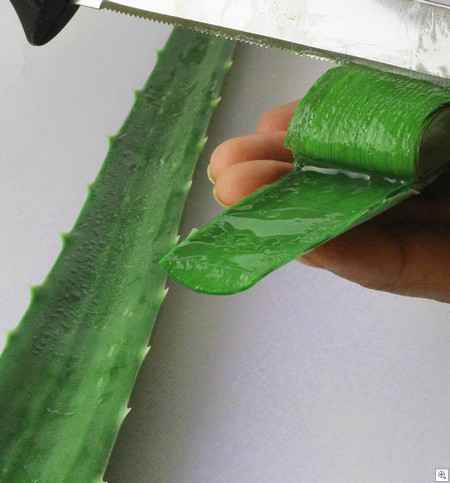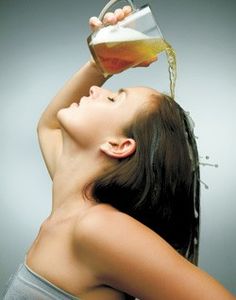Quick & Easy Remedies for Oily Hair
Oily hair can be a pain. You wash, brush and style it, only to have it look stringy and greasy what feels like minutes later. Dealing with oily hair can feel like a losing battle, but it doesn’t have to be. These quick and easy tips will keep your luscious locks looking beautiful all day long.
#1 Wash it the right way
The normal hair-washing rules don’t apply to those of us with oily hair, my friends. Knowing how to wash your hair the right way is the first step to freedom from oily locks.
Use proper shampoo
Look for shampoos with a high pH balance. Normal hair needs 4.5 – 6.7pH while oily hair needs 6.7 or higher. The alkaline base cuts through oils better. Most shampoo brands will mark their higher pH products with “For Oily Hair” or some variation – use those instead of the normal hair shampoos.
Lather, Rinse, Repeat
The repeat part is important. Use a dollop of shampoo (about the size of a quarter or slightly more). Lather, rinse and then repeat. One wash removes oil and the other removes dirt, dry skin and other icky things.
Try an Aloe Vera wash
 If you already have shampoo (but for normal hair) and don’t want to throw $10 at a new bottle… or perhaps you share your bathroom with siblings, family or a significant other (lucky you!), try making your own shampoo for oily hair with Aloe Vera.
If you already have shampoo (but for normal hair) and don’t want to throw $10 at a new bottle… or perhaps you share your bathroom with siblings, family or a significant other (lucky you!), try making your own shampoo for oily hair with Aloe Vera.
1. Mix in a bottle: 1 cup shampoo, 1tbsp lemon juice, 1tbsp Aloe Vera gel
2. Use as you would regular shampoo
3. Keep in the fridge when not in use
Go Easy on the Conditioner
While conditioner is often our go-to hair product – to prevent breakage, strengthen hair and, for many, make it more manageable, it tends to contribute to the day’s oily sheen. Use conditioner sparingly and only on the ends of your hair. Try rubbing a dollop of conditioner between your palms and then running your hair through your hands, instead of your hands through your hair. This applies conditioner on your locks rather than your scalp, which will keep oily residue to a minimum.
#2 Give it a good rinse
After every wash, rinse your hair thoroughly. Soap residue causes your hair follicles to go into overdrive, which makes your locks even oilier than before.
Using one of these home-made rinses 3 times a week can help. Mix the ingredients listed in a spray bottle and apply by spritzing on your mane. It’s just a small step to add to your shower routine:
1. Lather, rinse, repeat
2. Apply & let sit for a few minutes
3. Wash with warm water
Tea Rinse
The tannins in tea will cut through soap and oil, giving you cleaner hair for longer. In fact, according to this article on findwholeness.com, different teas are great for different hair colors, and experimenting with a variety of teas can be a fun, inexpensive way to change it up.
Ingredients:
1/2 cup tea of your choice (pick one you’ll find nice to smell all day)
1 cup water
Cider Vinegar Rinse
While Cider Vinegar is technically acidic (which means it has a low pH), it has the closest pH to human hair. This makes it a great conditioner and cleanser for hair. Best used on darker hair colors (it can make lighter colors look brassy), use it immediately after you’ve dyed your hair and it’ll prolong the hair color’s life.
Ingredients:
1 part vinegar
4 parts water
Lemon Rinse
The astringent qualities of lemon juice tightens skin and pores – reducing the space available for oil to seep out into your hair. It also has alpha hydroxy acids to exfoliate dead cells. Just beware: lemon juice bleaches hair in the sunlight – so this rinse is great for lighter hair or if you’re hoping to lighten a dark color.
Ingredients:
Juice of 1 lemon (strained)
1 cup water
#3 Keep it oil-free on the go
We’re all busy people, so managing oily hair on the go is key. Oddly enough, baby powder is your savior here! Sprinkle it on your hair and let it sit for 5 minutes (do your make up in the meantime, or maybe pick out your outfit). Then comb it out and you’re ready for whatever the day throws at you.
To keep the oil down between washes, don’t brush your hair too much (no 100 strokes for you!) and try not to touch your hair too much. These distribute your hair’s natural oils and causes your hair follicles want to produce more.
Like this article? Share using your favorite social media site!




